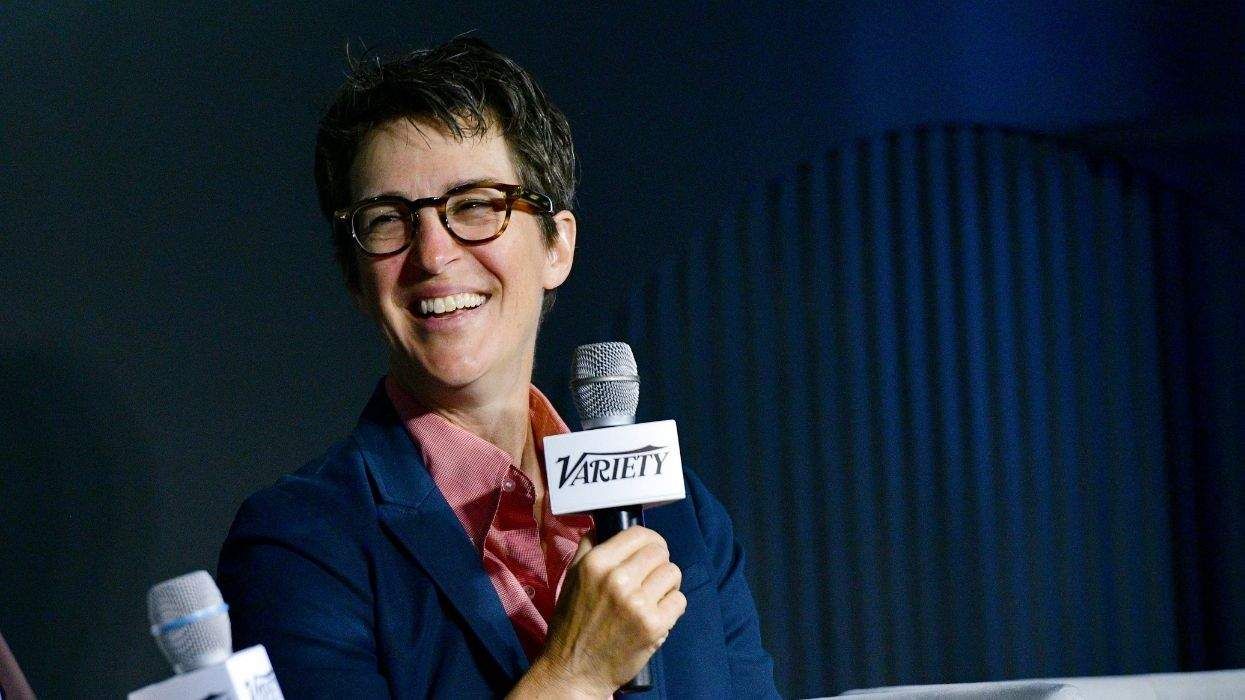Most of us will remember where we were when we learned the Supreme Court struck down section 3 of the Defense of Marriage Act. LGBT Americans have been fighting for almost a decade to overturn the blatantly discriminatory law, and we knew the significance of the moment. We knew our country had just taken a huge step forward.
But the march for equality is far from over.
Striking down section 3 of DOMA grants legally married same-sex couples access to more than 1,100 federal benefits they have been denied since DOMA's enactment in 1996 - the same benefits that legally married different-sex couples enjoy.
It's a different story for our veterans.
A statute called Title 38 still legally prohibits equal benefits for veterans in same-sex marriages and their spouses. This means that people like 12-year U.S. Army veteran Tracey Cooper-Harris and her wife, Maggie, are still treated like second-class citizens under current law.
Last year the Southern Poverty Law Center and the law firm of WilmerHale filed a federal lawsuit on behalf of Tracey and Maggie, arguing that both DOMA and Title 38 are unconstitutional because they prevent the Department of Veterans Affairs from recognizing Tracey and Maggie's marriage, making them ineligible for a number of benefits that veterans in different-sex marriages and their spouses routinely receive. This week, as to DOMA, the Supreme Court agreed.
But even with section 3 of DOMA out of the picture, Title 38 still blocks Tracey and Maggie from receiving the benefits they need and deserve. We have argued that Title 38 is unconstitutional, and we're currently waiting on a federal judge to announce her decision.
Tracey, a veteran of both Operation Enduring Freedom and Operation Iraqi Freedom, was diagnosed with multiple sclerosis in 2010. The VA determined the condition to be connected to her military service. There is no known cure for MS, a disease that attacks the brain and central nervous system. Tracey also receives disability compensation for post-traumatic stress disorder resulting from her service.
But Tracey and Maggie, whose marriage is legally recognized by their home state of California, are ineligible for a number of important benefits as a result of Title 38. Perhaps Title 38's most disgraceful offense is that it forbids Maggie from being buried with Tracey in a veterans' cemetery. At Tracey's funeral, Maggie would not be presented with the flag draped over her wife's coffin. These basic rights and many others are routinely provided to veterans in different-sex marriages and their spouses.
"I want Maggie buried with me," Tracey said. "Come to find out that because we are a same-sex couple, even though I can get buried at any veterans' cemetery, Maggie cannot. They do not consider her my spouse."
The discrimination they face makes their life a struggle. Maggie is an apprentice at an electricians' union, and Tracey is a graduate student who only recently got a job with the local VA. They're on a budget.
The additional benefits earned through Tracey's years of military service would offset some of the economic strain resulting from her medical condition. It would enable the couple to pay for measures Tracey's doctor has recommended to slow the progression of her multiple sclerosis.
So while the LGBT movement made history lasr week, inequality is not a thing of the past. Title 38 still tells Tracey that she is less than others because of the sex of the person she loves.
This is not how we should treat our veterans. They deserve the utmost respect under the law and throughout our society.
Following the Supreme Court's decision to strike down section 3 of DOMA, President Obama said he had directed the attorney general to work with Cabinet members to review all relevant statutes to "ensure this decision, including its implications for federal benefits and obligations, is implemented swiftly and smoothly."
Secretary of Defense Chuck Hagel announced that the Department of Defense "intends to make the same benefits available to all military spouses -- regardless of sexual orientation -- as soon as possible."
Now we call on Secretary of Veterans Affairs Eric Shinseki to follow suit. It's time to swiftly repeal the discriminatory definitions of "spouse" and "surviving spouse" in Title 38 and every other statute or regulation that doesn't recognize the dignity and equality of all Americans. Couples like Tracey and Maggie deserve equal rights immediately.
DAVID DINIELLI is the deputy legal director for the Southern Poverty Law Center and leads the organization's LGBT rights advocacy efforts. Prior to joining SPLC, Dinielli was a partner in a leading national law firm in Los Angeles. He served as co-counsel in the California Supreme Court challenge to Proposition 8. Previously he was a clerk for Judge Cynthia Holcomb Hall of the Ninth U.S. Circuit Court of Appeals. He is a graduate of Harvard College and the University of Michigan Law School, where he was managing editor of the Michigan Law Review.




































































Charlie Kirk DID say stoning gay people was the 'perfect law' — and these other heinous quotes